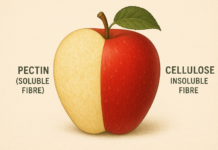By Dr Kamal ‘Akl, Consultant Paediatrician & Paediatric Nephrologist
Four generations—grandfather, father, son and grandson. The cycle of life continues, but one figure consistently stands tall in the hearts and homes of families: Baba.
While we often hear about Mother’s Day, it’s worth remembering that Father’s Day, celebrated in many countries on the third Sunday of June, also honours a powerful presence.
For me, it evokes memories not only of my own father, but also of my grandfather and the legacy they’ve left behind.
As a paediatrician who works closely with families, I’ve seen the many faces of fatherhood. And as a father and grandfather myself, I’ve come to appreciate the evolving, yet enduring, role of fathers in our children’s lives.
The Difference Between ‘Father’ and ‘Baba’
There’s a subtle but important distinction: a father is a biological title, but a Baba is something earned. A Baba is emotionally present, nurturing and connected—regardless of whether his child is healthy, living with autism, or facing medical challenges.
So, how do we define the different kinds of fathers we see in the world today? I often think of them in four types.
Type I: The Super Baba
This is the Baba who jumps in from day one—changing nappies, mixing formula, attending every doctor’s appointment and school event.
He’s not just present—he’s engaged. Even after a long day at work, he finds time to be with his family. He attends check-ups, stays on top of vaccinations and shows up during emergencies.
His love is unconditional. His commitment provides a secure foundation for his child’s physical and emotional wellbeing.
Type II: The Average Baba
He loves his children and cares deeply, but certain responsibilities—like healthcare—aren’t on his radar. He may not prepare bottles or know when the next vaccine is due, but he’s present in other ways, often sharing time and interests like sports or hobbies.
While his involvement may seem limited, his intentions are grounded in love.
Type III: The Silent Provider
This father loves his family but struggles to show it. Pressured by work or the burden of being the sole breadwinner, his time at home is limited.
His absence is often misinterpreted as indifference, though in truth, his heart is full.
Often, it’s only when he becomes a father himself that he realises how much his own father sacrificed.
Type IV: The Absent or Toxic Father
This is the hardest type to witness as a doctor and a member of society. These fathers distance themselves emotionally and physically—especially when facing the challenges of raising a child with disabilities or hereditary conditions.
I’ve encountered cases where fathers walk away entirely, even blaming the mother for genetic illnesses or the child’s sex.
In such situations, societal misconceptions often compound the emotional damage. These fathers not only fail their children, but perpetuate harmful cultural beliefs
The Role of the Father in Healthcare
As a paediatric nephrologist, I see how a father’s involvement—or absence—affects a child’s treatment journey.
Children who grow up with supportive, engaged fathers are often more confident and resilient. Those without this presence sometimes struggle emotionally and psychologically, especially during long-term medical care.
A father’s presence doesn’t have to be perfect. But it must be intentional. Whether you’re soothing a feverish child at night, or simply showing up for a school play, these moments matter deeply
A Personal Reflection
Fatherhood is not a one-size-fits-all role. Each brings his own experiences and limitations, but what remains timeless is the power of presence, care and love.
As we celebrate Father’s Day this June, I invite every father to reflect not only on what they provide materially, but on the emotional legacy they are building—one hug, one visit, one bedtime story at a time.
Because in the end, children remember the warmth of a hand held, the comfort of being heard, and the safety of knowing their Baba will always be there.
You can contact Dr Kamal ‘Akl at [email protected]






